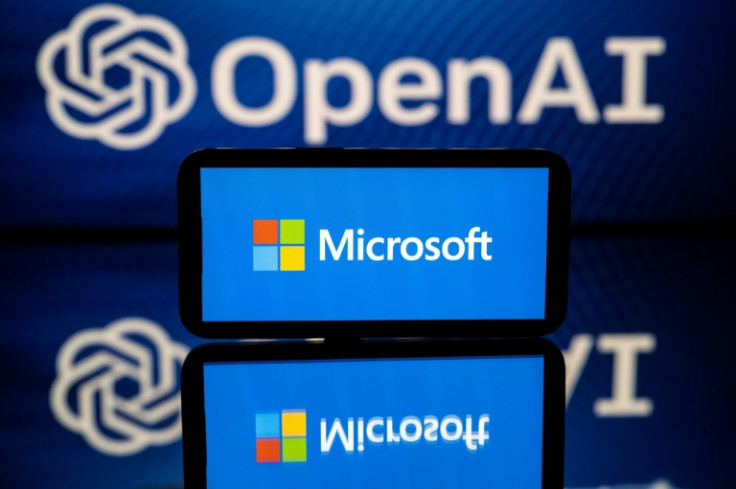
Microsoft says AI will continue to be deployed at scale as it becomes the world's most valuable company.
The tech giants overtook Apple to claim the top spot in January, as their market value reached over $3tn.
The landmark can be attributed to a recent spike in profits – the company said sales accelerated in the final months of 2023, lifted by demand for its AI tools.
It was revealed at their quarterly update to investors that their revenue between September and December rose 18 per cent to more than $60 billion.
After AI was thrust into the mainstream discourse with the creation of ChatGPT in November 2022, Microsoft quickly established itself as the driver of the technology.
It has invested more than $10 billion into OpenAI, the creator of ChatGPT, and the two businesses have a close partnership, with Microsoft boss Satya Nadella, and Sam Altman, the AI company's chief executive, frequently appearing together.
And just last week, Vodafone and Microsoft announced a 10-year strategic partnership that aims to bring generative AI and virtual data centres to more than 300 million customers.
The historic agreement will see the companies collaborate to offer revamped digital platforms to businesses, public sector organisations, and consumers across Europe and Africa.
Chief executive Satya Nadella confirmed that Microsoft is focused on applying AI as much as possible.
Microsoft is "moving from talking about AI to applying AI at scale by infusing AI across every layer of its tech stack", Nadella said, noting that the tech is contributing to the company "winning new customers and helping drive new benefits and productivity gains".
Nadella added that Microsoft expects an AI adoption cycle as customers using the company's AI tech see "work and workflow change".
The CEO compared it to the adoption of the personal computer within corporate work, saying that "it first starts with few people having access" and then "just like PCs became standard issue at some point after PCs being adopted by early adopters."
However, Microsoft's venture into the world of AI has not been without controversy.
The New York Times sued ChatGPT-maker OpenAI and Microsoft in a US court last month, alleging that the companies' powerful AI models used millions of articles for training without permission.
Through their AI chatbots, the companies "seek to free-ride on The Times' massive investment in its journalism by using it to build substitutive products without permission or payment", the lawsuit said.
The action, which also names Microsoft as a defendant, says the firms should be held responsible for "billions of dollars" in damages.
ChatGPT and other large language models (LLMs) "learn" by analysing a massive amount of data often sourced online.
Microsoft has been incorporating AI-assisted tools for coding, and other purposes, into its software and other offerings for businesses.
Sales of Copilot started in November. The programme can summarise meetings held in Teams for anyone who chooses not to attend. Copilot can also draft emails, create Word documents, spreadsheet graphs and PowerPoint presentations.
Mr Nadella said these recent moves were paying off and "winning new customers".
Sales of Microsoft's Azure cloud computing offerings, which are closely watched by investors, rose 30 per cent year-on-year, better than analysts had predicted.
Overall, profits in the quarter rose 33 per cent year-on-year to $21.9bn.
In February last year, Microsoft integrated ChatGPT's capabilities into Bing, its own search engine, in a direct challenge to Google.
Speaking at Chatham House in London before attending the World Economic Forum (WEF) in Davos, Satya Nadella said that generative artificial intelligence would "reset" how information was found and distributed.
The strategy for AI is also top of mind at Alphabet, the owner of Google and YouTube, which also updated investors on Tuesday.
Alphabet said revenues in the September-December quarter rose 13 per cent year-on-year and reported profits of nearly $20.7bn, compared with $13.6bn last year.
Boss Sundar Pichai claimed the company's search, cloud computing and YouTube were also benefiting from investments in AI.







